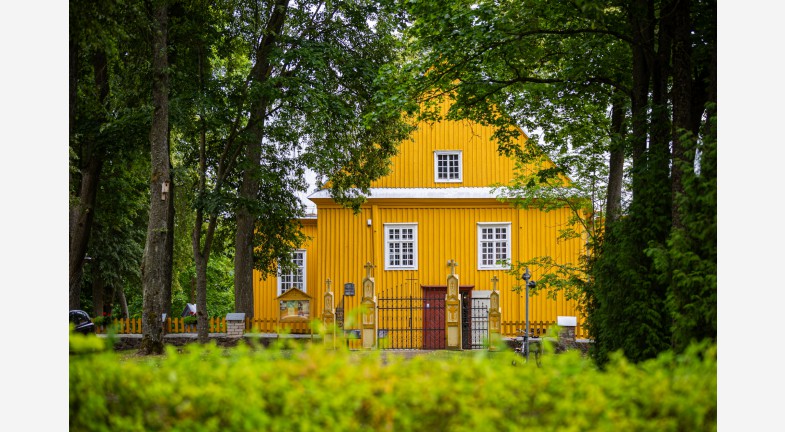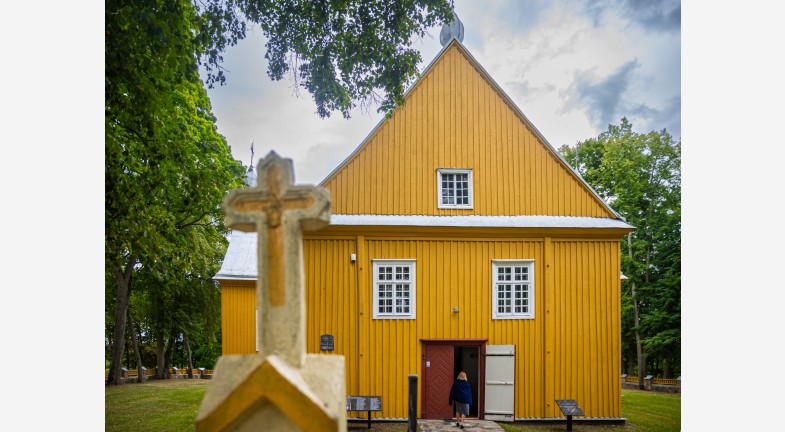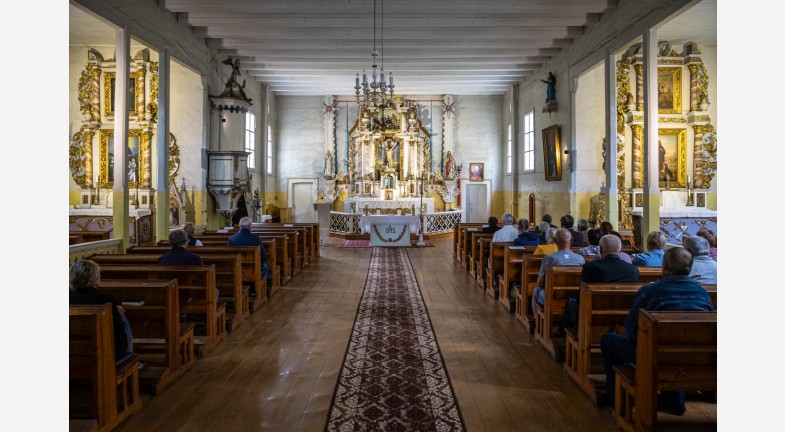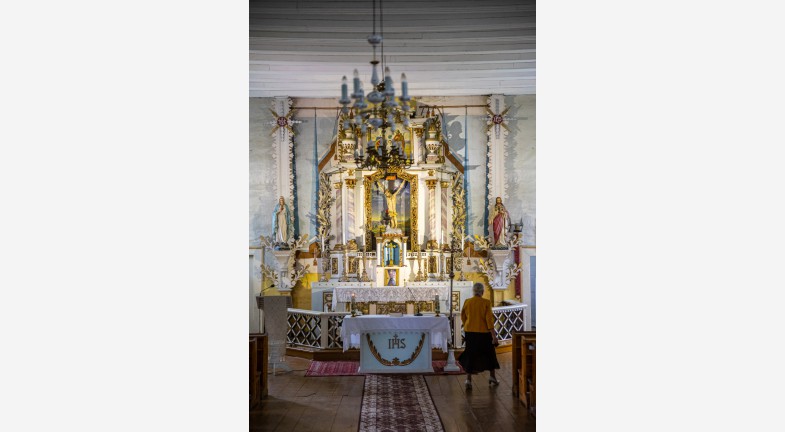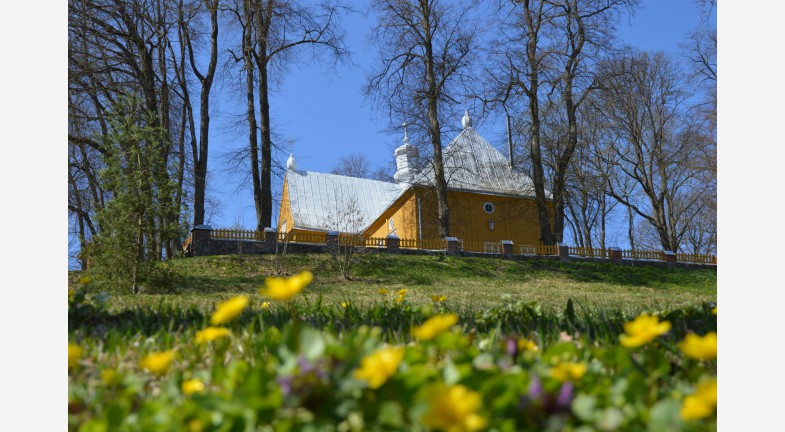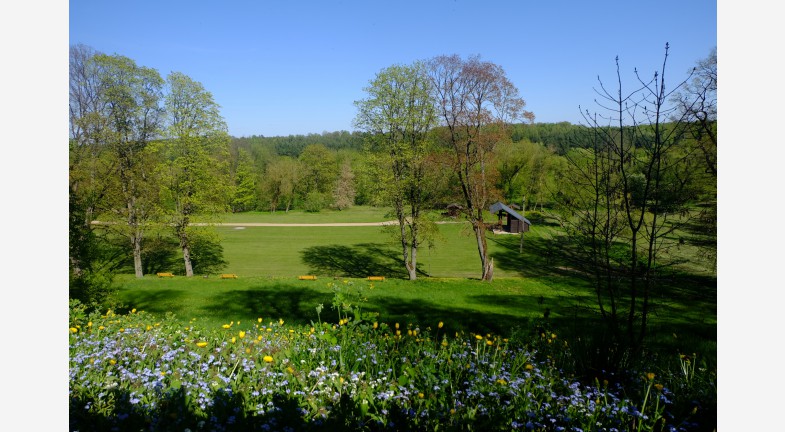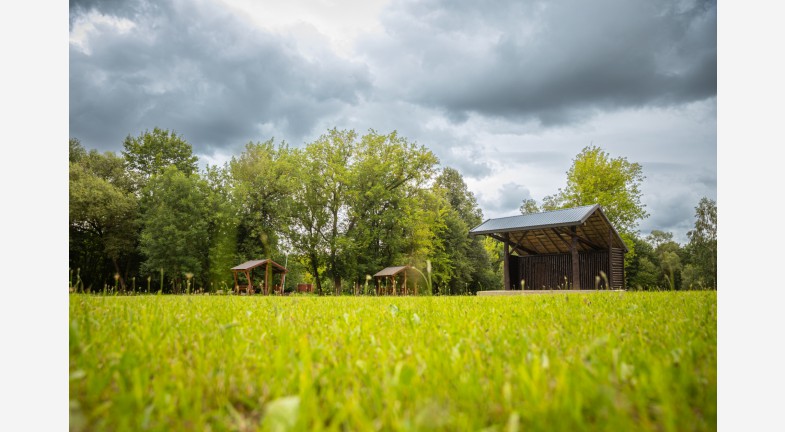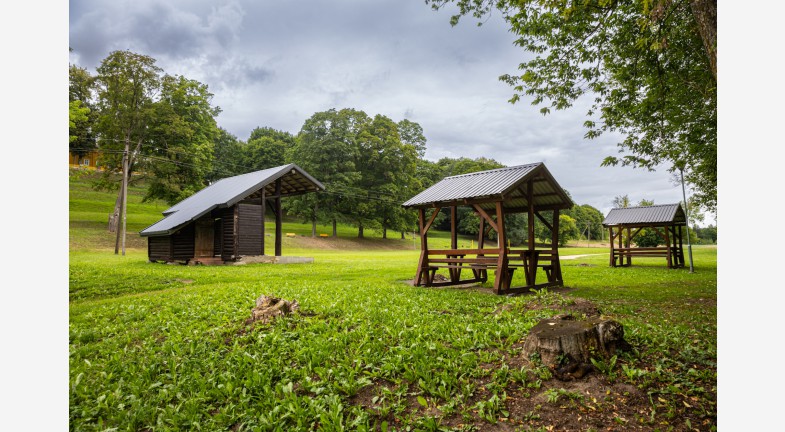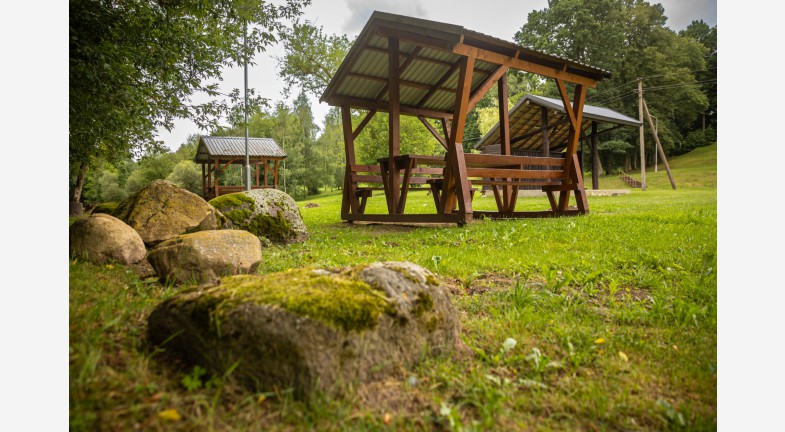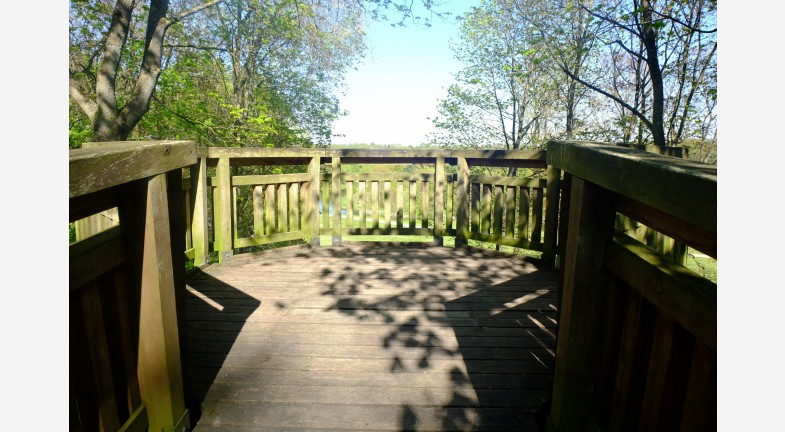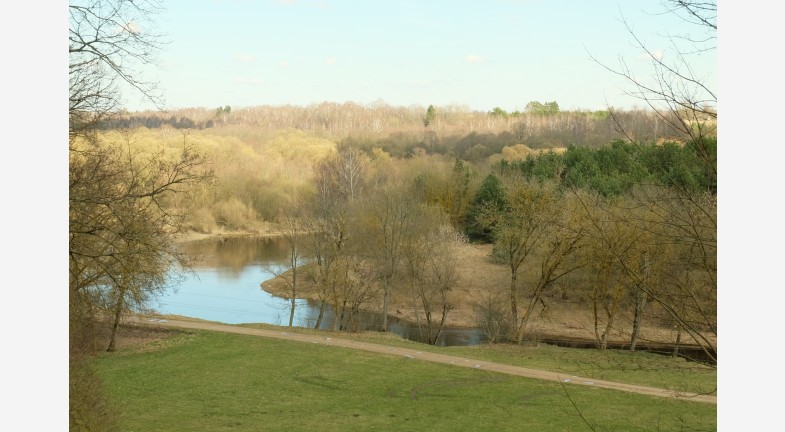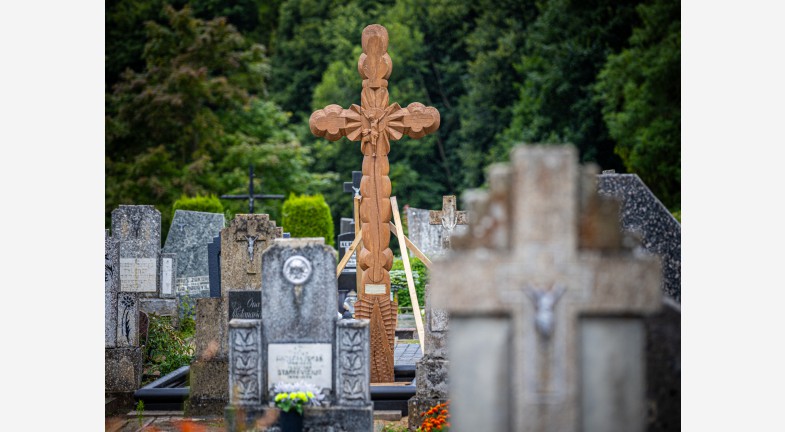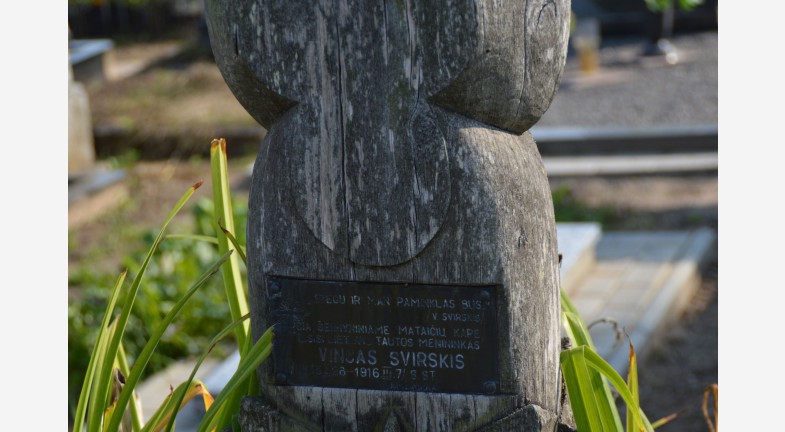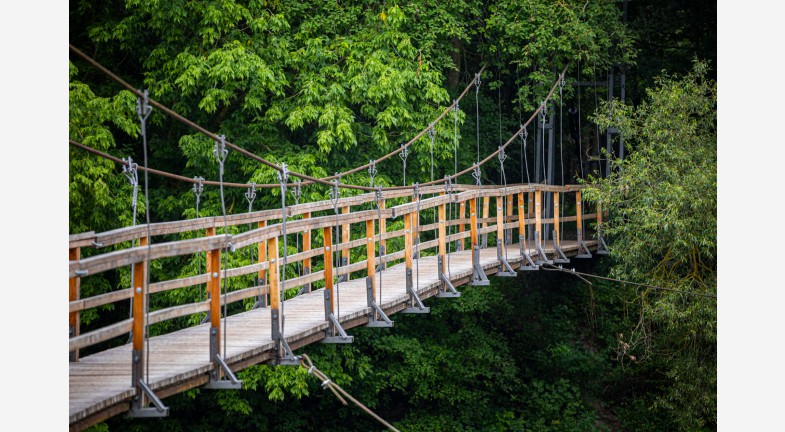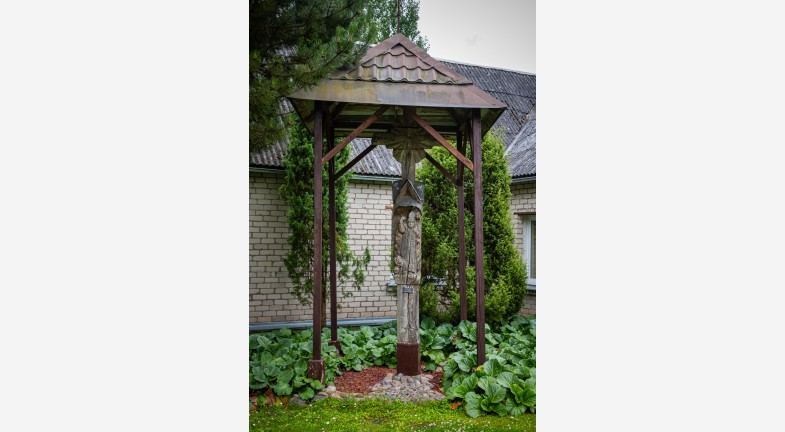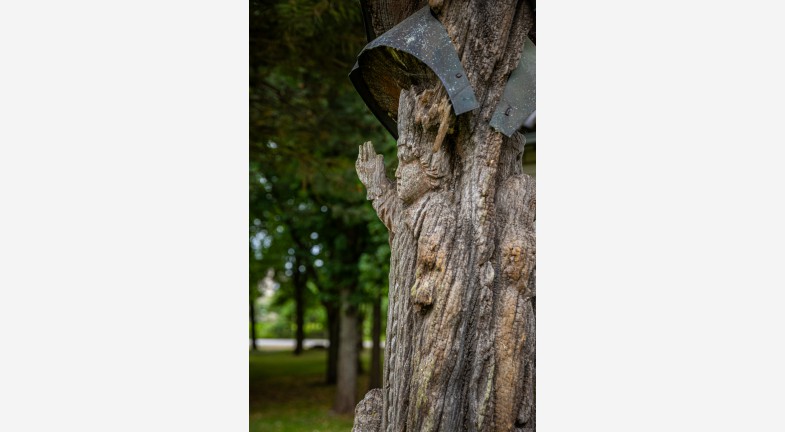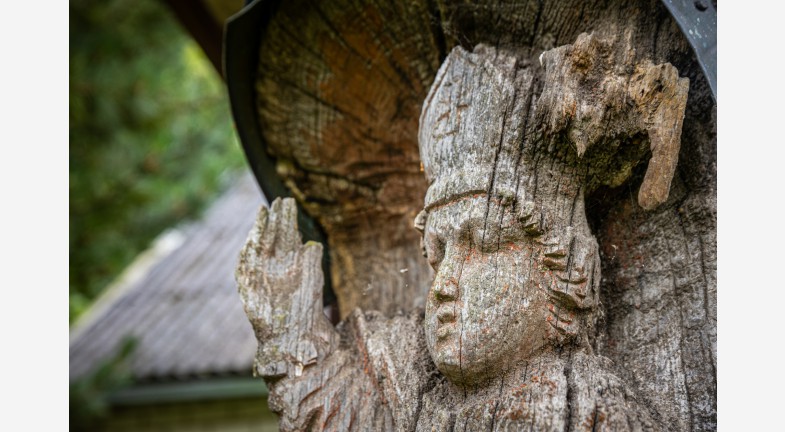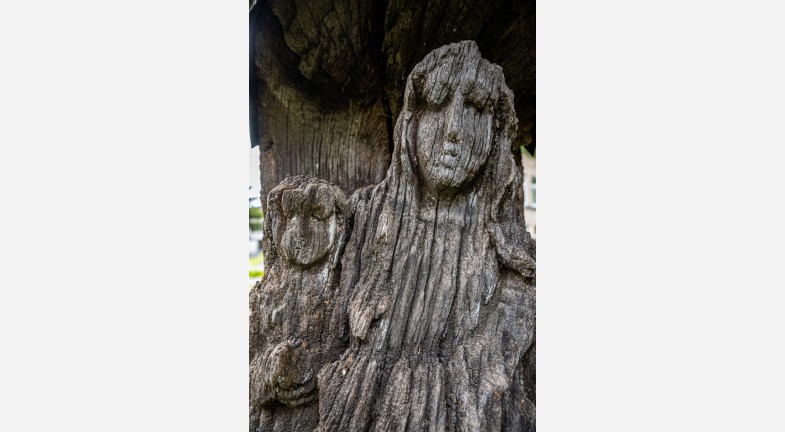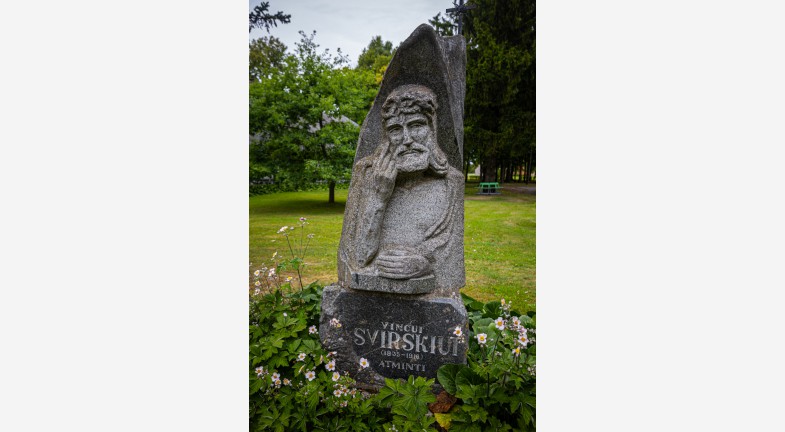There is a recreation space with tables and benches and a view platform to the panorama of the Nevėžis River. One can enjoy strolling along the river and the bridge over it.
It is believed that the name of Surviliškis is derived from a person‘s name. Surviliškis was mentioned in the written sources in 1500, when the grand duke of Lithuania Alexander Jagiellon granted the manor of Surviliškis to hospodar marshal Bartosz Taborowicz, brother of the Bishop of Vilnius. In 1505, he granted Surviliškis to the Samogitian Diocese that owned it for several centuries.
The sacred hill of Burveliai and Bakainiai hillfort near Surviliškis belong to the pagan era. They were mentioned in 1372 by the Livonian Knights. Bakainiai hillfort was described as 'a well-fortified castle'.
The Church of the Crucified Christ was built in 1791. Its interior features some valuable religious artworks.
From 1703 local markets were held regularly, from 1777 there was a parish school. At the end of the 19th century, Surviliškis saw a boost in the national movement. During the ban of the Lithuanian press, book smugglers provided citizens with Lithuanian books. The environs saw an active national movement.
In 1921, a primary school, post-office, health and veterinary care, pharmacy, cooperative society “Aušra“, brewery and nine shops were operating. A bridge was built in 1932 and destroyed during World War II. The ruines are still to be seen.
The first Lithuanian volunteer soldier to die in war against Soviet Russia Povilas Lukšys (1886–1919) was born in Kazokai village and attended Surviliškis primary school. His cousin, rifleman Floras (Flioras) Lukšys participated and was killed during the Klaipėda Revolt in 1923. During World War II the Jewish community was destroyed, a lot of citizens were exiled and imprisoned. Partisan units operated and anti-Soviet resistance fights took place in Surviliškis environs.
The poet, writer, translator and Nobel Prize winner Czesław Miłosz (1911–2004) was born in Šeteniai, Surviliškis District.
In the late 19th and early 20th century in the environs there lived and worked the most prominent and distinctive cross-crafter of Lithuania Vincas Svirskis (1835–1916). The crosses of Vincas Svirskis are considered masterpieces of the Lithuanian folk culture. One of his crosses is to be found near the school in Surviliškis. The cross is decorated with haut-relief images of St Ann Teaching the Virgin Mary and St Stanislaus. It was made in the late 20th century. Another cross is inside the school. Vincas Svirskis was buried in the old cemetery of Surviliškis, in the Mataičiai family grave.
Surviliškis is situated in Krekenava Regional Park. Its characteristic features are multiple old riverbeds in the form of a horseshoe and picturesque old valley of the Nevėžis River with natural meadows. The Lithuanian pilgrims‘ route Camino Lituano crosses Surviliškis.
Enjoy the landscape of the Nevėžis valley from the viewing platform, examine the XVIIIth-century church, Vincas Svirskis heritage, have fun on the pedestrian suspension bridge.
Address
Surviliškis, Kėdainiai District


